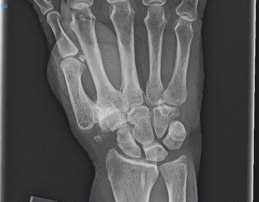17. Some groups of humans have an average male height of less than 150 cms. Which one of the groups listed below have members that are below 150 cms on average in height?
From Quiz I'm Not Vertically Challenged! I'm Short!
Answer:
Pygmies of tropical Africa
Groups of very small humans whose average male height is less than 150cm are called pygmies. The most well known pygmies are those of central Africa but many groups can be found in Thailand, Malaysia, Indonesia, and the Philippines, Pygmies can be also found in Papua New Guinea, Brazil, Bolivia and Asia. Many explanations have been given for the short stature of these people including low ultraviolet light levels in the rainforests, lack of food and low calcium levels in the soil. Many of these people are hunter-gatherers who have to move around the rainforests quickly, therefore small stature could be a genetic necessity for them and their descendants. If the light levels are low then Vitamin D, which is necessary for bone growth and maintenance, cannot be absorbed into the skin. The latest research suggests that during adolescence, Insulin-like Growth Factor is only present in smaller amounts compared to adolescents who grow more than five feet.








 Quick Question
Quick Question Top 10% Rated Quiz,
Top 10% Rated Quiz,